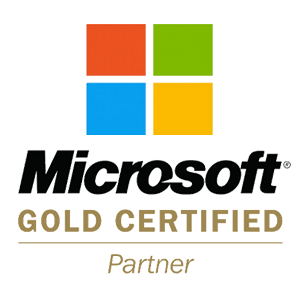The past few years have witnessed a revolution in retail payment processing. New options in payment processing have emerged from a landscape consisting almost entirely of credit cards, debit cards and store branded cards. Also during this time period, amounts charged for merchant processing of charge cards have continued to rise, which has been a hotly debated topic between processors and retailers. The $7.25B proposed settlement in early July between Visa/MasterCard and a class action group of retailers is the latest development in this conflict.
To give some background to the controversy, credit card processors claim that the processing fees themselves have not really increased, but because more consumers are paying with plastic, the dollar amount of fees charged have increased as cash sales have fallen. Retailers claim that fees have increased as well. Without argument, dollars paid by retailers for credit/debit card processing have risen, regardless of the reason. Given the thin margins most retailers operate on, 100 extra basis points paid for credit card processing represents a 10% or more profit decline. Overall, US retailers are estimated to pay $40B a year in processing fees, so the numbers at stake are huge.
In determining a method of payment to use and accept, perspectives from customers and merchants differ. For the customer, it’s about ease of payment, perception of security and the ability to pay as desired (over time versus as a direct bank debit). For merchants, after accommodating customers as much as possible on how they want to pay (let’s not make it hard to be our customer, please), it’s about cost of processing, security and the ability to control fraud (avoid chargebacks from processors).
Unlike American Express, which has historically low complaint ratios for its market share, Visa/MasterCard comes from a splintered network of bank issuers, with varying customer satisfaction scores. That means that fewer customers are as tied to Visa/MasterCard as a preferred method of payment as they might be to American Express (and Discover, which has similarly high satisfaction scores, though with a much lower market share). If you further factor in customers who are using their Visa/MasterCard as a debit card, their real objective is simply to transfer money from a personal bank account to a merchant to complete a purchase.
Much press has been given to Google Wallet, ISIS, Square, Inc. and Groupon as new players in the retail payment arena, but these options all represent better, mostly mobile, ways for payments to be processed via existing customer credit cards (such as Visa, MasterCard, American Express and Discover). This may make paying for purchases more convenient and sometimes more economical for merchants due to economies of scale, but the end processor of the charge is still the major credit card companies.
With all the elements above aligning, the landscape is ripe for competition and some actual new methods of payment have surfaced in response:
- Individual bank initiatives already enable person to person payments and may allow direct person to merchant payments in the future. Almost all of the larger players offer a person to person payment option including US Bank, Wells Fargo, Chase and Bank of America.
- Social networking site Facebook is currently testing person to person payments in Australia in a move that, if successful, is expected to transition to a wider market. Again, this technology could enable person to merchant payments in the future.
- PayPal is experimenting with acceptance at physical stores with aggressive pricing for merchants. PayPal as a form of payment is currently being accepted at Home Depot and is planned at many other retailers, including Office Depot, Abercrombie & Fitch, Aeropostale, Barnes & Noble and American Eagle Outfitters. Note that about half of the payments processed by PayPal are directly from user bank accounts or PayPal prepaid accounts (with almost -0- cost to PayPal, allowing very aggressive pricing). The remainder of PayPal-processed payments is via a linked credit card, such as a Visa or MasterCard.
Note that these options actually represent new ways to pay for purchases, not new ways to funnel purchases through existing payment methods. All the players are in a position to either offer directly or facilitate pay over time (meaning that they could offer customers both debit and credit services). While most of these payment methods are early in the marketing and acceptance phase, the draw is ease and convenience on the part of customers and lower costs on the part of merchants.
Though Visa/MasterCard settled in the retailer initiated class-action lawsuit, as noted above, the settlement leaves Visa/MasterCard in the position of determining and passing off costs very similarly to before, after an 8-month 10 basis point hiatus on swipe fees. The settlement further allows merchants to charge a surcharge for accepting credit cards, which was previously prohibited. Do customers like their Visa/MasterCard enough to pay a 2-3% surcharge for the privilege of using it? If being used as a debit card (really just to effect a bank transfer), probably not. If being used as a form of credit (a credit card at a favorable rate), it’s more debatable.
Regardless, with Visa/MasterCard currently controlling about 70% of the total charge card market, will we look back in 10 years and note that this was the height of Visa/MasterCard’s market share? Unless something fundamentally changes in the value that Visa/MasterCard brings to both customers and merchants, it seems a credible outcome.
Susan Alvarez is the Vice-President of Consulting Services at ITK Solutions Group. ITK Solutions Group is a retail-focused consulting firm specializing in retail enterprise resource planning (ERP) solutions.





